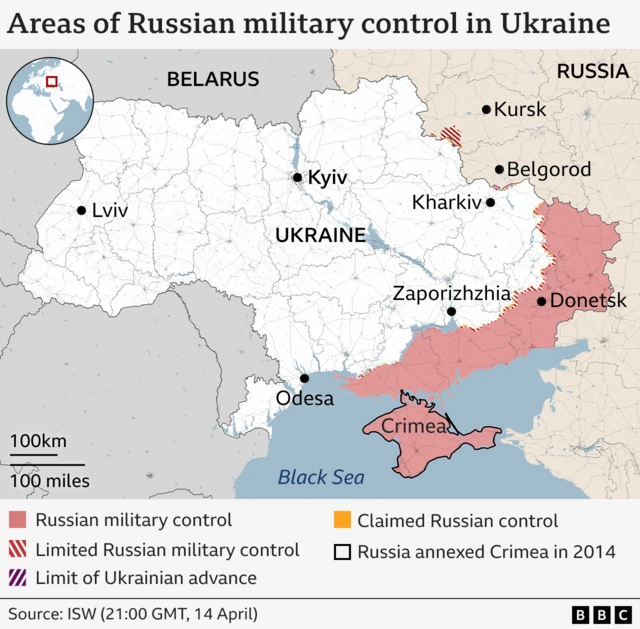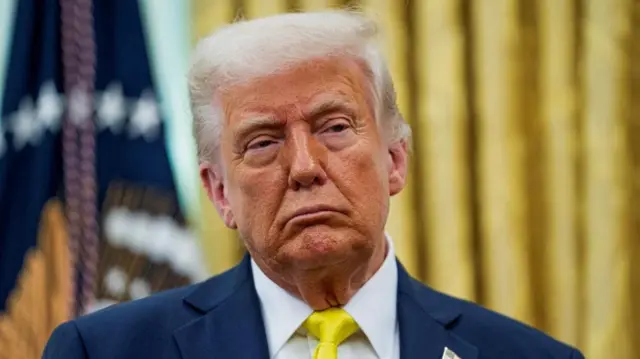Russia bears the brunt of the blame for broken trucespublished at 10:07 British Summer Time 21 April
 Vitaliy Shevchenko
Vitaliy Shevchenko
Russia editor, BBC Monitoring
To expect the so-called Easter truce to have much of an impact would have meant ignoring what has happened in the 11 years of this war.
Easter truces have been attempted before, as well as about 20 other ceasefires – none lasted, and some have failed within minutes.
Russia bears the brunt of the blame for broken truces, even though Ukraine bears some responsibility, too.
“Russia has never seriously entered into any talk about a cessation of hostilities with the intent of actually ceasing hostilities,” Matthew Savill, director of military sciences at the Royal United Services Institute (RUSI) in London, tells me.
He also argues that Russia has tried to use previously declared ceasefires to gain advantage on the battlefield and provoke a response from the Ukrainians.
This time around, Vladimir Putin is emboldened by Washington’s friendly rhetoric, the slow-down of America’s aid to Ukraine, and the slow but steady progress made by Russian forces.
He is also keen to send a message to Donald Trump that it is Russia, and not Ukraine, that is genuinely interested in peace.
Whether Donald Trump believes that message is crucial ahead of some key talks expected this week. Ukrainian Prime Minister Denys Shmyhal will be travelling to the US, where he may sign the minerals deal long demanded by Washington.
And London is expected to host another round of negotiations involving Ukrainian, US and European officials.






